Intro
Discover 5 crucial autism vaccine facts, debunking myths on vaccination and autism link, vaccine safety, and autism spectrum disorder causes, symptoms, and treatments.
The relationship between vaccines and autism has been a topic of intense debate and scrutiny over the past few decades. Despite overwhelming scientific evidence to the contrary, many parents and caregivers continue to worry about the potential link between vaccinations and the development of autism spectrum disorder (ASD). It is essential to address these concerns with accurate and reliable information, ensuring that families can make informed decisions about their health and wellbeing. The importance of understanding the facts about vaccines and autism cannot be overstated, as misinformation can lead to decreased vaccination rates and increased risk of preventable diseases.
The controversy surrounding vaccines and autism has led to a significant amount of research and investigation into the potential causes of ASD. While the exact causes of autism are still not fully understood, studies have consistently shown that vaccines do not contribute to the development of the condition. In fact, numerous scientific organizations, including the Centers for Disease Control and Prevention (CDC), the World Health Organization (WHO), and the American Academy of Pediatrics (AAP), have thoroughly examined the evidence and concluded that there is no link between vaccines and autism.
The persistence of misconceptions about vaccines and autism has serious consequences, including decreased vaccination rates and increased risk of preventable diseases. It is crucial to address these misconceptions with accurate and reliable information, ensuring that families can make informed decisions about their health and wellbeing. By understanding the facts about vaccines and autism, individuals can separate myth from reality and make informed choices that protect not only their own health but also the health of their communities.
Vaccine Safety and Efficacy
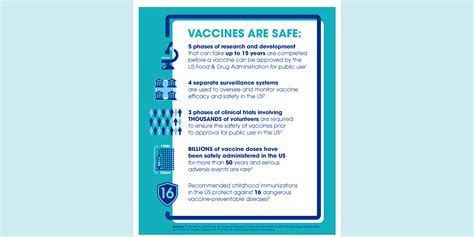
Regulatory Framework
The regulatory framework for vaccine approval is stringent and multi-layered. Vaccines must undergo extensive testing and evaluation before they are licensed for use. The FDA, CDC, and other regulatory agencies work together to ensure that vaccines are safe and effective. This collaborative effort involves ongoing monitoring of vaccine safety and efficacy, as well as regular reviews of emerging data and research findings.The Science Behind Vaccines and Autism
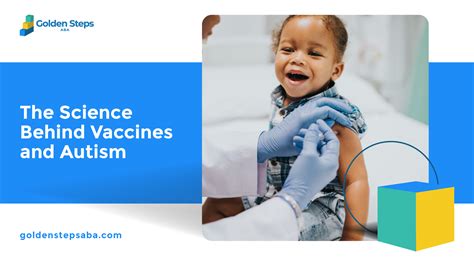
Key Findings
Some key findings from scientific studies on vaccines and autism include: * A 2012 meta-analysis published in the Journal of Pediatrics found no association between vaccination and the development of autism. * A 2019 study published in the Annals of Internal Medicine found that the measles, mumps, and rubella (MMR) vaccine does not increase the risk of autism. * A 2020 review of 67 studies on vaccines and autism, published in the journal Vaccine, concluded that there is no evidence to support a link between vaccination and the development of ASD.Debunking Common Myths
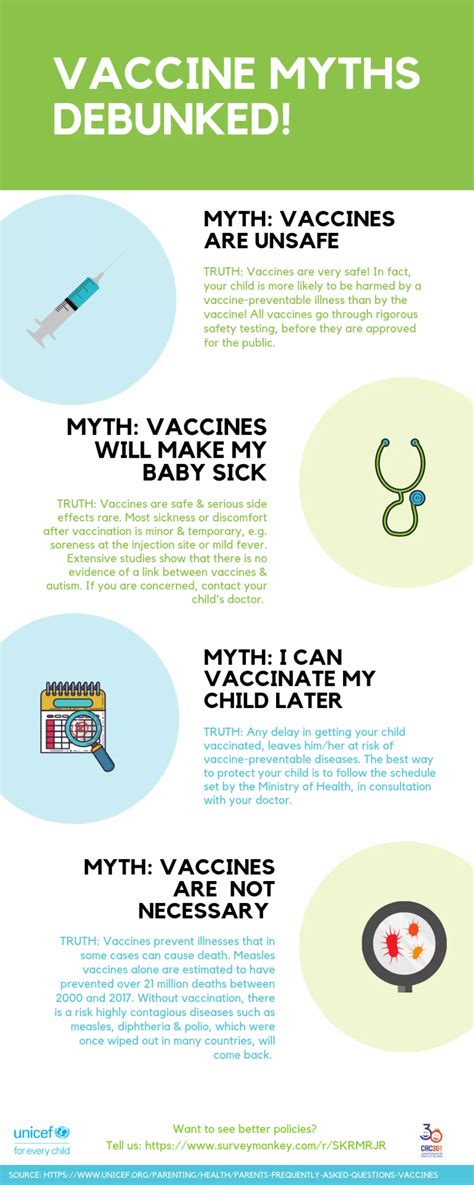
Setting the Record Straight
It is essential to set the record straight on these common myths and misconceptions. Vaccines are rigorously tested for safety and efficacy, and the ingredients used in vaccine production are safe and well-tolerated. The immune system is capable of handling the small amount of antigen present in vaccines, and there is no evidence to suggest that vaccines overwhelm the immune system or cause autism.Real-Life Implications
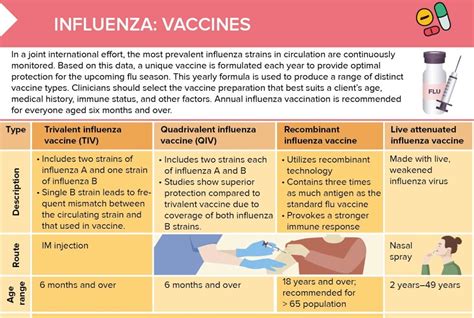
Personal Stories
Personal stories and anecdotes can be powerful tools in promoting vaccine awareness and understanding. By sharing their experiences and perspectives, individuals can help to humanize the issue and raise awareness about the importance of vaccination. Some personal stories may include: * A parent whose child was diagnosed with autism and is now advocating for vaccine awareness and acceptance. * A healthcare provider who has seen firsthand the devastating consequences of vaccine-preventable diseases. * An individual who has experienced the benefits of vaccination and is now promoting vaccine uptake in their community.Staying Informed and Engaged
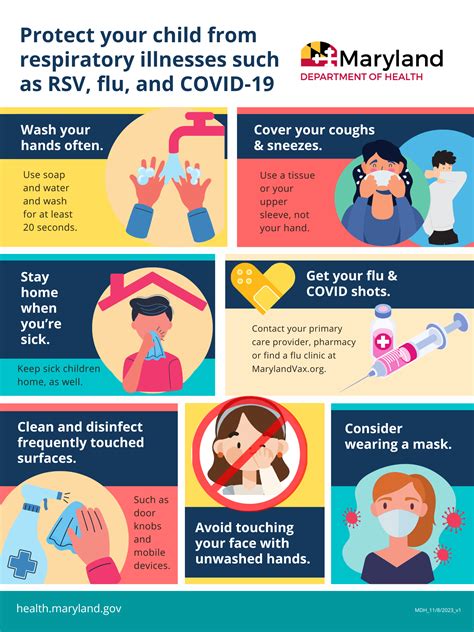
Resources and Support
Numerous resources and support systems are available for individuals and families affected by autism or seeking information on vaccine safety and efficacy. These resources may include: * Online forums and support groups for families and individuals affected by autism. * Reputable health organizations, such as the Autism Society and the CDC, which provide accurate and reliable information on vaccine safety and efficacy. * Healthcare providers and medical professionals who can offer guidance and support on vaccine-related issues.What is the current scientific consensus on the link between vaccines and autism?
+The current scientific consensus is that there is no link between vaccines and autism. Numerous studies have consistently shown that vaccines do not contribute to the development of autism spectrum disorder (ASD).
How are vaccines tested for safety and efficacy?
+Vaccines are rigorously tested for safety and efficacy through a multi-stage process, including laboratory testing, animal studies, and human clinical trials. Regulatory agencies, such as the FDA and CDC, closely monitor vaccine safety and efficacy to ensure that vaccines meet the highest standards of quality and safety.
What are some common myths and misconceptions about vaccines and autism?
+Common myths and misconceptions include the claim that vaccines contain toxic ingredients, such as mercury or formaldehyde, which can cause autism, and the assertion that vaccines overwhelm the immune system, leading to the development of ASD. These myths have been debunked by scientific evidence and reputable health organizations.
How can individuals stay informed and engaged on the topic of vaccines and autism?
+Individuals can stay informed by following reputable health organizations, reading scientific studies and peer-reviewed articles, and engaging in respectful and open-minded discussions with others about vaccine safety and efficacy.
What resources and support systems are available for individuals and families affected by autism or seeking information on vaccine safety and efficacy?
+Resources and support systems include online forums and support groups, reputable health organizations, and healthcare providers and medical professionals who can offer guidance and support on vaccine-related issues.
In conclusion, the relationship between vaccines and autism is complex and multifaceted. While there is no scientific evidence to support a link between vaccines and autism, misinformation and misconceptions continue to persist. By staying informed, engaged, and respectful, individuals can promote public health and wellbeing, and support families and individuals affected by autism. We invite you to share your thoughts, experiences, and questions on this topic, and to join the conversation on vaccine safety and efficacy. Together, we can work towards a future where everyone has access to accurate and reliable information, and where public health and wellbeing are prioritized.
